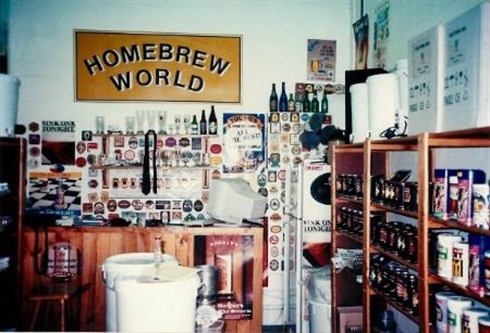
Top stories



HR & ManagementNational minimum wage 2026: What workers (and employers) need to know
Danelle Plaatjies and Ludwig Frahm-Arp 11 hours



More news




















According to CNBC Africa, SABMiller is to become a new owner of London-based modern craft beer brewer, Meantime Brewing Company, giving SABMiller a head start into the fastest-growing UK beer market. According to Bizcommunity FMCG news Standard Bank estimates it could grow 30% this year, 35% in 2016 and could make up to 18 million litres by 2017 in South Africa. This will be a 2.1% share of the total premium and light beer market - from just 0.3% in 2011.

In the US, the retail value share of craft beer has a growth rate of 20% since 2012. With that said, it is still too early to say if the emerging craft beer market will take over that of mainstream. Technically, craft beer is another form of beer, not to say that it will replace mainstream beer brands such as Castle and Heineken. It is labelled as super-premium beer, a little above premium brands like Heineken and much higher than Castle variants. Be that as it may, this product class has recently made its way to receive analysts' undivided attention following headlines on leading publishers like Bizcommunity, CNBC and CNBC Africa.
It is such attention and recognition that beer giant SABMiller and its subsidiary, SAB, are on a quest to enter this market. It is interesting how there are distinct strategies when approaching both the local and global craft beer playing fields.
It appears that parent company SABMiller is on a quest to acquire relatively small brewers, of which is a commendable great market entry strategy. On the contrary, SAB sees fit to rather introduce a relatively new batch of craft beer brand of their own, called No 3 Fransen Street which, launched last year.
This brings the question, which of the two is the better strategy, business acquisition, or new product launch?
The craft beer market is very similar to the Harley Davidson market, here is how. Craft beer brewers and drinkers are a relatively small community driven by a few factors such as loyalty.
This community is so small that normally, competitive brewers know one another.
So let me put it this way, to be in concurrence with my first line, if BMW AG wanted to enter the Harley Davidson market, would it be better for them to create a new product in attempt to try steal Harley's customers or would it be best for them to buy into the leader of this market? Think about it.
Let us take it further and say, SAB continues to launch their brand in attempt to dominate the craft beer market. What then if a couple of craft beer brewers - who already own this market - decide to merge in efforts of retaining the market share, increase distribution, increase resources, and maintain production costs among other reasons. Will this not put SAB's new brand to its knees...again?
Needless to mention that this is SAB's second attempt at entering this market in such a manner. While SABMiller on the other hand is going about it the best way there is by acquiring a few stable craft beer brewers in the US and recently in the UK as well.
If you ask me, I would say that my money is on business acquisition followed by the parent company.
